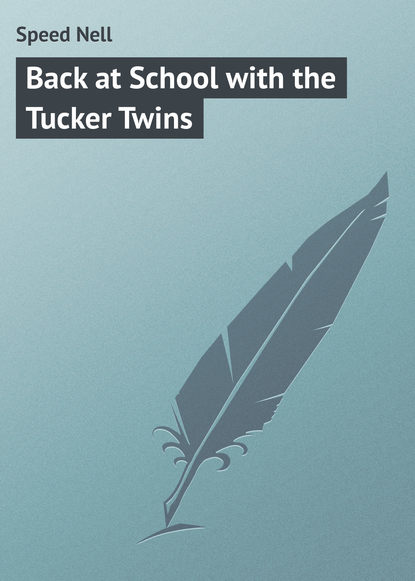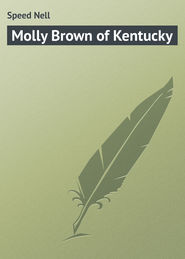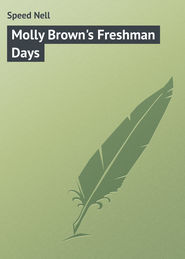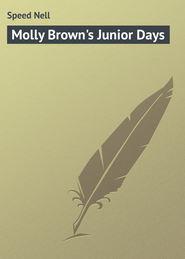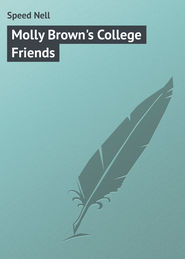По всем вопросам обращайтесь на: info@litportal.ru
(©) 2003-2024.
✖
Back at School with the Tucker Twins
Настройки чтения
Размер шрифта
Высота строк
Поля
"When I was a boy of twelve, just your age, I had just about the reputation you have. But my father had a family of seven children, of which I was the youngest, so when I cut up he knew just what to do with me. He realized that I had a great deal of surplus energy and having no good way of working it off, I always got into mischief and sometimes into rather serious trouble.
"Your Dad told me about your stealing the minister's horse and putting a large red 'Hell' on one of his sides. When I was a boy I remember that I made a bomb out of a little powder and an old sock and put it under the porch of a Negro church (Hal, as man to man, I trust you not to try this stunt). Of course I stayed to watch the fun. I thought the fuse was longer than it was and came closer to adjust it – Bang! and I was left with no eyebrows. I was too scared to run and the darkeys began to pour out, threatening darkly as to the future welfare of my soul. They caught me and took me to the county lockup. That evening my brother came and bailed me out. My father asked me where my eyebrows were, and I said, 'I reckon part of them are by the Nigger church.' Of course he gradually got the details and a very thick silence followed. Then he told me just what I am going to tell you. But first, – Hal, don't you think it's funny what a passion all boys have to torment the parsons of both the white and black race? I do.
"Dad said that I needed to be kept busy and with something that gave me pleasure. He was never strong on punishment and he suggested something that pleased me mightily. He said that if I would build a canoe and a pair of paddles by the last of May he would give me and three of my friends a camp for two weeks by the river. I was glad my eyebrows were gone, for who doesn't like to camp?
"Now, Son, you ask your dad if he won't make this same agreement. You have a month to do it in and I reckon you can have a dandy canoe made by that time.
"Let me know what Mr. Allen says.
"Sincerely,
"Uncle Sam."
Hal looked over the letter at his daddy and thought a minute. Then he said: "Jo, this here Uncle Sam ain't so worse. Here's a pretty decent thought that rattled out of his head." Mr. Allen took the letter and read it and then he, too, thought a minute.
"I'm on, Son," he said, "and you can have your friends to help you."
"All right! Then shall I write and tell our darling Unkil that it's a go?"
And this was the letter Uncle Sam got from the "wayward youth he was trying to straighten out":
"Mr. Uncle Sam,
– Building,
New York.
"Dear Uncle S.:
"Yours of the inst. rec'd., first. Jo – that's my dad and He's a peach too let me tell you – says your idea suits him fine and anyway he always goes to New York the first two weeks in June on business and then I have to stay with Aunt Maria at Sunny Glen and I hate it because she is so clean. I hate to milk too and she is so afraid I'll get drowned when I swim in the icepond. She is a terrible nut because I can swim fine. I've got a monogram for my sweater for swimming at the Y. M. C. A. pool and that's bigger and deeper than old spit-in-the-fire Aunt Maria's dinky little icepond. Daddy took me in the roadster over to the next town to order the stuff for the canoe. What do you think would be a good name for her after we finish it? We've put up part of the skeleton already. Sometimes on a straight road Jo lets me run the roadster – it's a Mercer. Do you like Mercers? I like them the best and so does Jo. I can't change gear very good yet and I am too young to get a license but I am strong enough to crank it. I've got right much muscle. Did you like to fight when you were a boy? I love my black eyes on other people. Jo says it is tough to fight, so he boxes with me. He can box fine, too. He can beat me swimming and diving all to pieces, too. I've got to stop now because Pete is whistling for me to come catch with him.
"Rept. HAL ALLEN."
CHAPTER II
"Jo, I wish you would bring me a Remington rifle from New York. I'm old enough to have a good one now, and tell my reformer I named the canoe 'Uncle Sam'. I like that old man so much I wish he'd come down here to live."
"So long, Son! I hope you will have a peach of a time at your camp. Oh, yes! Aunt Maria told me to be sure and tell you not to go swimming but once a day, but I always lived in my bathing suit – at least we will say I had a bathing suit – and you can do the same."
It was only an hour's trip to New York and Jo was busy thinking about the change in Hal and wondering if Uncle Sam would consider it strange for him to invite him to go home on a visit. He decided he would go by Uncle Sam's office and speak to him and make an engagement for the theatre that night.
Jo Allen stopped a minute in front of Uncle Sam's office door to get out a card and then he rang the bell. A very handsome, auburn-haired, green-eyed girl answered his ring and he gave her his card with a rather bewildered smile, for he wondered why such an old man as Uncle Sam kept such a darned good-looking female to tickle the keys.
"May I see Uncle Sam?" he asked.
"Why, certainly!" she said. "Please come in."
Her "Certainly" sounded Southern to Jo. He might have thought some more but he was interrupted by the girl.
"You will sit down, won't you?" she smiled at him from her swivel chair.
"Thank you! Will Uncle Sam be along soon do you think?" he queried.
"Oh! I thought you understood. Why, Mr. Allen, I am Uncle Sam."
"Ohgoodlord!" Jo said it very loud and as though it were all one word. Then after a minute, "What the devil will Hal say when he finds his Uncle Sam is a woman?"
"I see no reason why he should know." Uncle Sam was very calm and unconcerned.
"But you see I swore I'd bring Uncle Sam back on a visit. I had it all planned out that Uncle Sam and I would take in a show to-night…"
"I don't reckon Uncle Sam would mind going to the theatre, Mr. Allen. You might ask him," said the girl very frankly.
"Good for you, Uncle Sam, – you are a peach, after all. Hal may be disappointed, but, believe me, I am not. I wish you would tell me your name."
Jo was looking much happier now. He had forgotten what Hal would say when he got home Uncle Samless, – but really her hair and eyes were enough to make him forget and her voice was very musical with its Southern accent.
"Page Carter," she told him, "and I suppose you want to know the whys and wherefores of Uncle Sam's business. Well, you can probably tell from my name that I am a Virginian and from my occupation that I am poor, and if you could see my brain at work or my poor attempts at sewing, you would see why I had to choose this way of making a living. Yes, I had to do it. You see, my mother and father are dead and I could not accept my friends' kind invitations to come and be their barnacles."
"Miss Carter, you need not worry about the workings of your brain. That was a dandy bluff you put up. I could see you with white hair, seated at a desk, writing Hal about your boyhood scrapes. Let's make it a supper before the theatre. Are you game?"
"Sure," she said.
Jo noticed she did not have to look in a mirror to make her hat becoming.
"Mr. Allen, your son has written me so much about you that I feel as though I knew you. That is very bromidic, but it is so."
Jo never knew what they had for dinner and Page Carter did not get many of the lines of the play. She had always been strong for black hair and grey eyes. She knew, too, that he was successful from his clothes and Hal's remarks about the Mercer, and he surely was an amusing companion. Hal interested her. New York wasn't much when you were in it by yourself and it was very evident that Jo liked her and his grey eyes were beginning to look…
The play was over; and she had promised to meet him for lunch and afterwards to pick out a rifle for Hal.
A week later Hal jumped out of the canoe and rushed up to the boys in camp and waved a yellow slip of paper before them. "Listen," he yelled, "'Be home to-morrow. Got rifle. Uncle Sam with me. Dad.'"
CHAPTER XIV
HOME FOR THE HOLIDAYS
Nods and Becks met with great favour and we felt after our labours that we had earned the good times we meant to have during the holidays. The Tuckers had decided to come to Bracken for Christmas, so we were in the seventh heaven of bliss. Annie and Mary could not accept the invitation that Father had told me to give them as they had to go to their respective homes, Annie to be with her dignified paternal relative, and Mary with what she assured us was a far from dignified maternal one.
We had never met any of Mary's people but hoped to some day, as all she told us of them sounded pretty nice. She had no father but was unique among us as she actually could boast a mother. She had one little tiny sister and a big brother who was a mining engineer. The Flannagans lived in the valley of Virginia. They were of rugged Scotch-Irish stock, very different from the softer, aristocratic types to be seen in the tide-water section. Their home was in Harrisonburg and we knew afterwards that they were well off but no word from Mary ever gave us to understand it. She always was quick to pay her share and more than her share in any jaunt we went on together, but I believe I never heard Mary mention money. Tweedles and I used to wonder if they were not fabulously wealthy because of all the material that was wasted in Mary's voluminous skirts. It seems that Mary's mother always wore full skirts and she just had Mary's made the same way.
The last night before the holidays we broke about all the rules we could remember. Some may have escaped us, but I doubt it. We cooked in our rooms; visited in other girls' rooms; laughed and made a racket in the halls; slid down the bannisters; and were generally obstreperous, – so much so that Miss Plympton said we would have to work off our demerits when we got back from the holidays. This pleasing bit of news she imparted to us at the very early breakfast we had on the morning of our departure. But we were going home, and threatened demerits after the holidays had no more effect on our spirits than a sermon on hell fire would have had on the ardour of a new-born babe.
On the way to the station we passed our dear old friend, Captain Pat Leahy, who was faithfully keeping the gate at the railroad crossing. He stumped out on his peg leg to give us the "top o' the morning."
"An' phwat do ye hear of that poorrr sick angel, Miss Peyton? Bless her heart!"
"We believe she is recovering, Captain Leahy. We miss her terribly."
"Miss her! I should say ye would, with her winnin' ways and the kind smile of her. And phwat does the managemint mene by hoistin' a lady on ye poorr lambs with the manners of a Tammany boss? Whin I saw her schtriding off of the trrain last Siptimber in her men's clothes, all but the pants, and a voice like a trrain butcherr, I said to meself: 'Pat Leahy, ther'll be trooble oop at Gresham this sission!' I knew it more than iver whin she pushed me cats away with her oombrella that she carried like a shillalah. A lady, whin she has no use for cats, is either a very timid lady and surely no fit person to look arfter a girls' school, or ilse she is that hard-hearted that she ought to have the job of dhriving a team of mules to a rock waggon."





